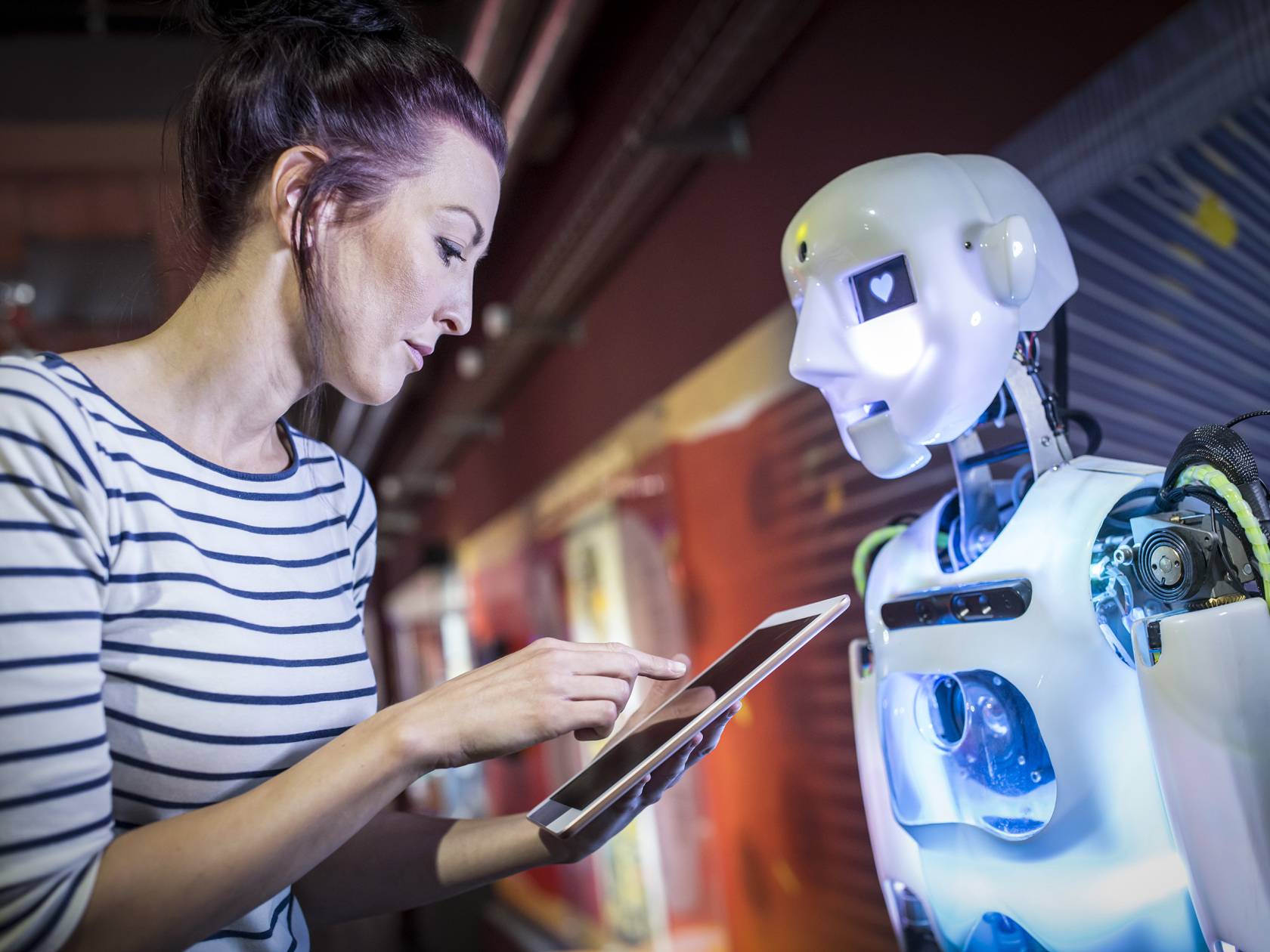
Frontline Jobs in an AI-Driven World
Artificial intelligence (AI) and robotics are transforming frontline jobs across industries such as healthcare, retail, and logistics. These technologies are enhancing operational efficiency and accuracy while simultaneously redefining the skills and roles required in the workforce. AI tools create significant opportunities for innovation and growth, but they also pose challenges, particularly in terms of worker displacement and ethical concerns. To navigate this transformation, organizations must prioritize the balance between technological advancements and the indispensable human touch.
AI's impact on frontline work
Healthcare
Artificial intelligence is revolutionizing healthcare by improving diagnostic accuracy, predicting patient outcomes, and streamlining care delivery. Deloitte highlights how AI-powered tools can analyze radiology scans with remarkable precision, assisting doctors in identifying anomalies early and enabling timely interventions. Robotic systems are also transforming surgical procedures, offering greater precision and reducing risks and recovery times. These advancements not only enhance patient care but also improve efficiency within healthcare systems.
Retail
AI is driving transformative operational improvements in the retail sector. The World Economic Forum highlights how automated inventory management systems optimize stock levels, reduce waste, and ensure shelves are consistently stocked with the right products. Cashier-less checkout systems are also enhancing customer experiences by reducing wait times and streamlining the shopping process. These innovations not only lower operational costs but also significantly improve customer satisfaction.
Logistics
The logistics industry is experiencing significant operational efficiencies through AI-powered robotics and predictive analytics. The World Economic Forum emphasizes how automation in warehouse operations enhances speed and accuracy in sorting, packaging, and inventory management. Additionally, AI-driven route optimization and the use of autonomous vehicles are revolutionizing last-mile delivery, ensuring faster and more reliable service. These technologies are reshaping supply chain management by reducing errors and improving overall delivery performance.
Balancing technology and human skills
While AI excels at repetitive and data-intensive tasks, frontline roles rely on critical human skills such as empathy, problem-solving, and adaptability. For example, in healthcare, robots can assist in surgeries, but nurses provide essential emotional care and connection to patients. Similarly, in retail, chatbots handle routine inquiries, but human employees build customer loyalty through personalized service. Organizations must ensure that AI is deployed to complement, not replace, these uniquely human strengths.
Strategies for effective integration:
- Involving workers in AI deployment: Engaging employees early in the process reduces apprehensions and fosters collaboration.
- Highlighting human value: Use AI to augment tasks while preserving roles that require creativity, decision-making, and interpersonal communication.
Bridging the AI divide in the workplace
Generative AI, like ChatGPT, is reshaping workplaces, but its adoption has highlighted significant disparities. Leaders are more optimistic about AI’s potential (62%) than frontline employees (42%), a gap largely caused by unequal access to AI tools and training. Currently, 80% of leaders report regular use of generative AI, compared to only 20% of frontline workers.
Organizations must close this divide by prioritizing inclusive training programs. Upskilling initiatives should focus on real-world applications of AI, soft skills like adaptability, and clear career pathways to ensure that frontline employees feel empowered and engaged, rather than displaced by technology.
Upskilling: Preparing the workforce for the future
As AI transforms frontline jobs, the demand for reskilling and upskilling has become critical. Nearly 44% of workers will need reskilling by 2025 to adapt to automation and changing job requirements.
Key areas for reskilling:
- Technical skills: Employees need training in AI system operation, robotics maintenance, and data analytics.
- Soft skills: Developing adaptability, critical thinking, and communication will remain essential in roles requiring collaboration between humans and machines.
Collaborative approaches:
Governments, businesses, and educational institutions must work together to create effective reskilling programs. Governments can offer subsidies for workforce training, while organizations can partner with schools and universities to design tailored courses that meet the needs of their workforce.
Empowering the workforce through responsible AI
The acceleration of AI adoption underscores the need for responsible implementation. While 79% of employees support AI regulation, only 29% of frontline workers believe their organizations have robust safeguards in place. To build trust, companies must focus on transparency, equity, and accountability in their AI frameworks.
Key actions for responsible AI:
- Regularly audit AI systems to identify and mitigate bias.
- Involve employees in decision-making processes related to AI deployment.
- Establish governance policies to ensure data privacy and protect sensitive information.
These steps will help create a workplace where employees feel supported and AI is embraced as a tool for empowerment, not disruption.
Ethical considerations in AI adoption
AI adoption raises several ethical challenges that organizations must address proactively. Automation, while increasing efficiency, can displace workers. Providing clear pathways for transitioning displaced employees into new roles is essential. Additionally, AI systems can perpetuate biases if not designed and evaluated carefully. Diverse development teams and regular audits are critical to addressing these issues. The reliance on large datasets also raises concerns about data privacy, making strong governance policies crucial to maintaining trust and protecting both employee and customer information.
Opportunities for innovation and inclusion
AI offers vast opportunities to enhance workflows and promote inclusivity:
- Workflow redesign: Automate repetitive tasks to allow workers to focus on strategic and creative roles.
- Improving accessibility: Automation can reduce physical barriers, enabling individuals with disabilities to excel in frontline roles.
- Driving innovation: By automating routine processes, organizations free up resources for employees to focus on customer-centric innovation and problem-solving.
A Human-first approach to AI integration
The future of frontline work lies in harmonizing human capabilities with AI-driven tools. While automation reshapes tasks and enhances efficiency, human empathy, creativity, and critical thinking remain irreplaceable. AI has the potential to elevate frontline work, creating safer, more efficient, and more fulfilling roles. Organizations that prioritize both people and technology will lead the way in shaping a collaborative and innovative future where humans and machines thrive together.
Talk to an ATOSS expert